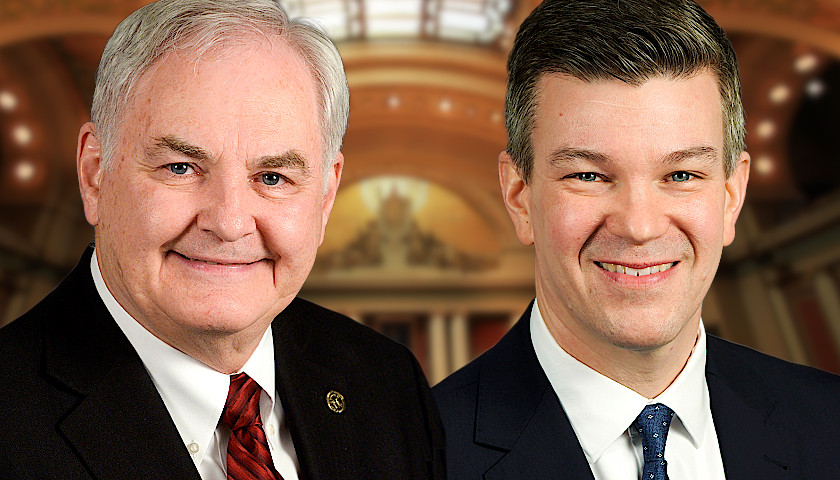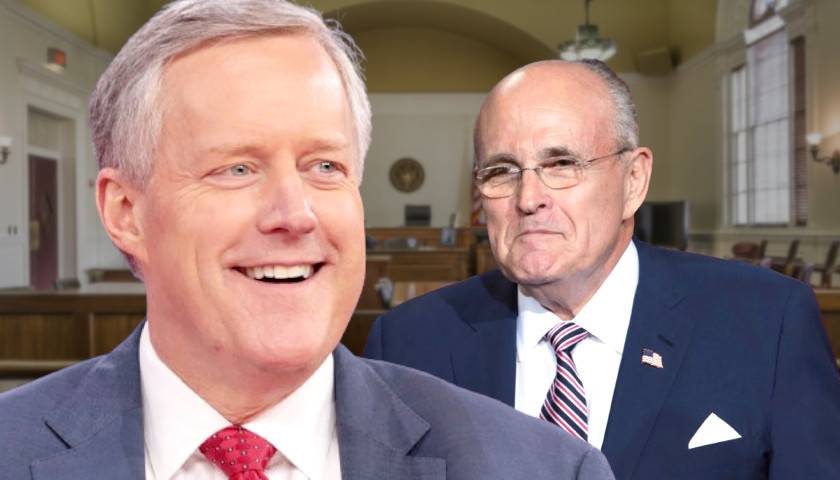A major opioids bill in Minnesota, House File (HF) 400, was introduced Monday at 3:30 p.m. House members and the public then had until Tuesday at 2:30 p.m., less than 24 hours, to offer any changes or amendments before the bill went to a hearing Wednesday at the Health and Human Services Policy Committee.
This “streamlined” process was made possible under a controversial DFL-backed temporary rules change that passed along party lines at the start of the 2019 session. Under the new rules, Rep. Lyndon Carlson (D-Crystal), chair of the House Ways and Means Committee, can move bills between subcommittees with just a memo instead of sending it to the floor.
As such, the rules allow multiple committees to hold hearings on a piece of legislation with little notice. Changes in the House’s committee structure further allow members to serve on subcommittees even if they don’t serve on the overarching committee, a House press release explains.
MinnPost’s Peter Callaghan put it simply: “it’s the way bills will flow between Carlson’s committee and the divisions” that Republicans are objecting to.
During this session, Carlson will have 21 subcommittees, or “divisions,” under the control of his Ways and Means Committee. His signature, rather than a vote, will be the deciding factor in moving bills related to the state budget between divisions.
What is generally a ceremonial first day of session with spouses and children in attendance turned into a debate on these rules between House Minority Leader Kurt Daudt (R-Crown) and House Majority Leader Ryan Winkler (D-Golden Valley).
“If we adopt these temporary rules without this amendment, you’re not only taking away the public’s ability to know what’s going on, and follow the process, and participate in the process. But you’re taking away your right as a member of this body every time one of those bills gets amended to weigh in on it,” Daudt said during the January 8 debate.
Winkler, however, said the new rules would streamline the process and argued that they have precedent in the Minnesota House. They were passed in a 74-59 vote.
These new rules are now affecting the 498 pieces of legislation introduced in the House thus far, many of which were introduced, referred to the Ways and Means Committee, and then immediately passed along to a subcommittee.
Of particular concern among Republicans is how the rules are impacting debate on HF 400, a sweeping opioids reform bill.
“I see in our list of bills HF 400 is the opioid bill that we discussed on Friday,” Rep. Debra Kiel (R-Crookston) said on the House floor after the bill was officially introduced. “My concern is that this is going to be heard, I believe, on Wednesday – which is awfully rapid before we would be able to bring any amendments forth.”
WATCH: Speaker Hortman cuts off questions about the DFL giving the public less than 24 hours to suggest changes to major opioids legislation.
The bill was introduced at Monday's 3:30PM floor session, with amendments due at 2:30PM Tuesday for Wednesday's hearing.#mnleg #mngop pic.twitter.com/LWHiOy1vev
— MN House Republicans (@mnhousegop) January 29, 2019
She went on to ask if the bill could be pushed “off a week” to give the public time to review the bill, but she was dismissed by House Speaker Melissa Hortman (D-Brooklyn Park).
“Rep. Kiel, that is not a proper issue for discussion under the business announcements,” Hortman replied.
Andrew Wagner, director of public affairs for the House GOP, criticized the DFL for jamming “through [a] major opioids bill despite giving the public less than 24 hours after introduction to review bill text and offer amendments.”
“Folks, it’s January. There’s no reason to be adding agenda items at 2 a.m. the night before, posting hearing notices for bills that aren’t introduced, and rushing to have hearings where the public has less than a day to review and offer changes,” Wagner wrote on Twitter, touching on another object of concern: bills can be scheduled for a hearing before they are technically introduced.
This allows members to comply with a rule requiring a three-day notice of a hearing, even if the text of the bill isn’t yet available.
Folks, it's January. There's no reason to be adding agenda items at 2AM the night before, posting hearing notices for bills (HFXXX) that aren't introduced, and rushing to have hearings where the public has less than a day to review and offer changes. #mnleg
— Andrew Wagner (@andrewwagner) January 29, 2019
“The public can’t follow this new DFL process,” Daudt chimed in. “Even the Democrats agree we need to do things better.”
The public can’t follow this new DFL process. Even the Democrats agree we need to do things better. Thanks @GenePelowski! https://t.co/yspzeNfXWW
— Kurt Daudt (@kdaudt) January 30, 2019
“Ugh…this sucks. C’mon MN House DFL this isn’t a good look,” said Indivisible MNLeg, an organization dedicated to “resisting the Trumpist agenda” at the State Capitol.
Ugh…this sucks. C'mon @mnhouseDFL this isn't a good look.
— Indivisible MNLeg (@IndivisibleMNLo) January 30, 2019
As far as the temporary rules go, Wagner explained that they are “adopted in the first week of session and are in place until the House adopts permanent rules.”
“Permanent rules are usually adopted in early/mid-February,” he added. “In theory this gives the majority time to craft/change rules, allow legislators to discuss/review/suggest changes etc.”
– – –
Anthony Gockowski is managing editor of Battleground State News and The Minnesota Sun. Follow Anthony on Twitter. Email tips to [email protected].
Photo “Lyndon Carlson, Sr (Left)” by Lyndon Carlson, Sr.
Photo “Ryan Winkler (Right)” by Ryan Winkler.
Background Photo “Minnesota Capital Chambers” by Chris Gaukel. CC BY-SA 2.0.





[…] The Minnesota Sun previously reported, the Democratic-controlled House kicked off the 2019 session by passing a set of temporary rules. […]
[…] The Minnesota Sun previously reported, the Democratic-controlled House kicked off the 2019 session by passing a set of temporary rules. […]
[…] The Minnesota Sun previously reported, the Democratic-controlled House kicked off the 2019 session by passing a set of temporary rules. […]
Dictators “streamline processes” by taking away debate and discourse as well!